#Ernest Tidyman
Text

October 2015. I was a bit dubious about this miniseries, which is an origin story of John Shaft, Ernest Tidyman's private investigator character who later featured in a trio of blaxploitation movies (perhaps best known today for the first film's Isaac Hayes soundtrack), but it's pretty decent. The plot breaks no new ground for the genre: John Shaft is a Vietnam veteran and former boxer who becomes a private detective and ends up trying to avenge the murder of his girlfriend, even though it means bucking the mob and the city's corrupt cops in the process. However, it's refreshingly straightforward and appropriately tough-minded, resisting any impulse to self-mockery. If you like the movies, it's not a bad companion piece. (I've never read the Tidyman novels.)
The interior art is by Bilquis Everly, less fanciful than her recent Wonder Woman and Supergirl work, but with a nice flair for real-world characters that suits the gritty mood. Maybe the biggest complaint is that her Shaft doesn't look anything like Richard Roundtree, who played the character in the movies and TV show. Walker's notes at the end say this was deliberate, to bring the character closer to the description in the novels (and one supposes there were likeness rights issues as well), but if you're mainly familiar with the movies — which are of course part of the blaxploitation canon — it's hard not to feel the character doesn't really look like John Shaft, even a somewhat younger John Shaft.
#comics#movies#blaxploitation#david f walker#bilquis evely#denys cowan#bill sienkiewicz#shaft#john shaft#ernest tidyman#isaac hayes#richard roundtree
18 notes
·
View notes
Photo
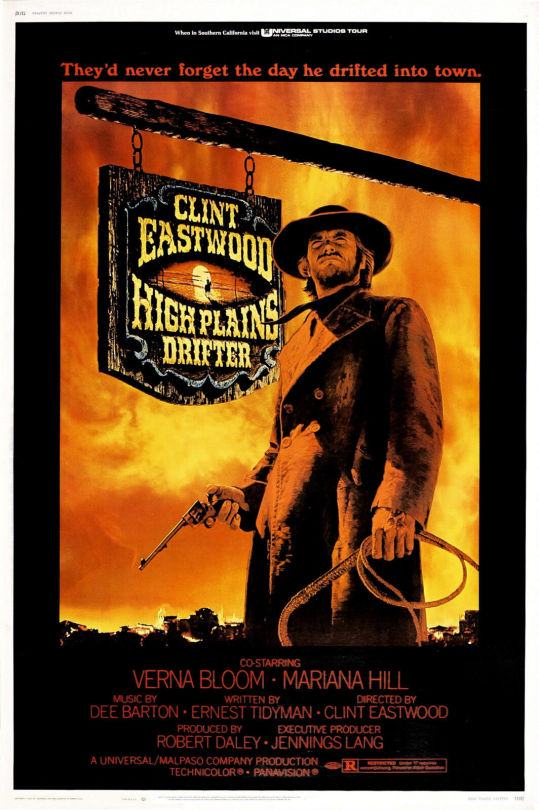
#clint eastwood#movie poster#movie posters#verna bloom#mariana hill#dee barton#ernest tidyman#movies#high planes drifter#jennings lang#robert daley#western#poster#posters#film#films#1970s
33 notes
·
View notes
Text
Top two vote-getters will move on to the next round. See pinned post for all groups!
#best best adapted screenplay tournament#oscars#academy awards#best adapted screenplay#schindler's list#steven zaillian#thomas keneally#cimarron#howard estabrook#edna ferber#in the heat of the night#stirling silliphant#john ball#7th heaven#benjamin glazer#austin strong#the french connection#ernest tidyman#robin moore#marty#paddy chayefsky#bracket tournament#brackets#poll#polls
2 notes
·
View notes
Text


Shaft is a 1970 detective novel by Ernest Tidyman. The novel debuted the character John Shaft and inspired both the 1971 film Shaft and its sequels.
4 notes
·
View notes
Text
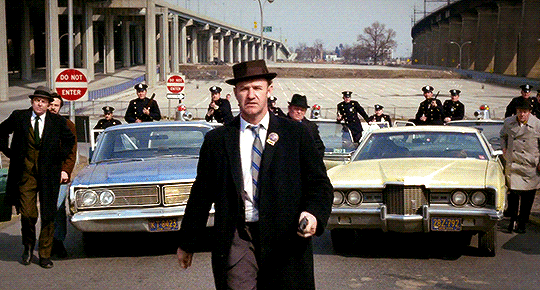
.
That car is dirty, Cloudy. We're going to sit here all night if we have to.
The French Connection, William Friedkin (1971)
#William Friedkin#Ernest Tidyman#Gene Hackman#Fernando Rey#Roy Scheider#Tony Lo Bianco#Marcel Bozzuffi#Frédéric de Pasquale#Bill Hickman#Arlene Farber#Harold Gary#Patrick McDermott#Owen Roizman#Don Ellis#Gerald B. Greenberg#1971
0 notes
Video
youtube
Ernest Tidyman wins the Academy Award for Best Adapted Screenplay for The French Connection (1971) – presented by Tennessee Williams; introduced by Jack Lemmon
Despite a brief problem with the teleprompter and his lack of experience reading off of one, playwright Tennessee Williams (A Streetcar Named Desire, Who’s Afraid of Virginia Woolf?) was game to present Adapted Screenplay at the 44th Academy Awards.
That year’s winner would be Ernest Tidyman for the neo-noir film The French Connection, adapting Robin Moore’s 1969 non-fiction book of the same name. The film follows two New York Police Department (NYPD) detectives - Jimmy “Popeye” Doyle (Gene Hackman) and Buddy “Cloudy” Russo (Roy Scheider) - in pursuit of a French drug smuggler.
Also known for his screenplays to the blaxploitation film Shaft (1971) and the the sequel, Shaft’s Big Score (1972), Tidyman walked home with the Oscar on his only career nomination. In total, The French Connection was nominated for eight Academy Awards including Best Sound, Cinematography, and Supporting Actor (Scheider). The film won five times: Film Editing (Gerald B. Greenberg), Adapted Screenplay (Tidyman), Actor (Hackman), Director (William Friedkin), and Best Picture.
#The French Connection#Ernest Tidyman#Tennessee Williams#Jack Lemmon#44th Academy Awards#Oscars#31 Days of Oscar
0 notes
Text
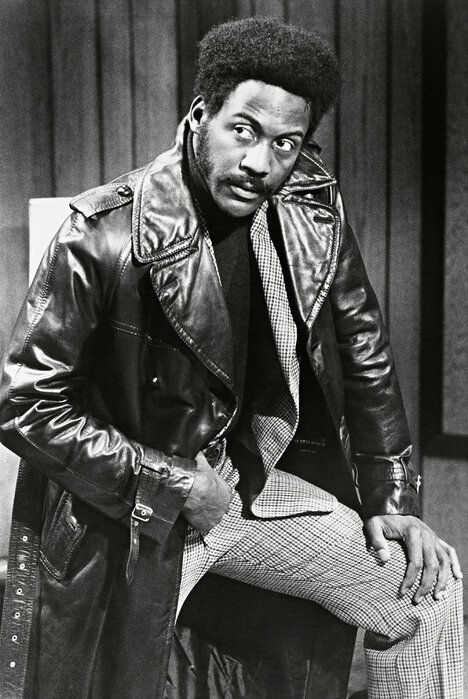
For the opening scene of Shaft – the 1971 film that helped inaugurate the “blaxploitation” genre and spawned an Oscar-winning song in Isaac Hayes’s call-and-response classic Theme from Shaft – the director Gordon Parks mapped out to the actor Richard Roundtree exactly what would happen.
Roundtree – playing the New York detective John Shaft who “won’t cop out when there’s danger all about” as the song puts it – was to stride out of the subway near Times Square, tracked by assorted cameras positioned opposite him and at high angles. “I want you to walk across 42nd Street,” Parks said. “And I want you to own it.”
Own it he did. In his beige turtleneck and brown leather trench coat, Roundtree swaggers and weaves through the hubbub, looking bemused at a demonstration going on around him (which was nothing to do with the film itself but a real-life protest by the Gay Activists Alliance) and improvising the moment when he raises his middle finger at an impatient cabbie. “I did own it,” he reflected. “Much better than I could ever have imagined.”
It was the first major screen appearance for Roundtree, who has died aged 81 of pancreatic cancer, and the one that defined him for the rest of his life. He was cast after a meeting with Parks, a former photojournalist, who showed him a magazine advertisement and said: “We’re kind of looking for a guy who looks like this.” Serendipitously, it was an ad featuring Roundtree himself.
In optioning Ernest Tidyman’s 1970 novel, in which Shaft is hired to rescue a gangster’s kidnapped daughter, MGM had considered making the characters white. But Parks defended the novel’s vision, including its acute awareness of Black culture. He wanted audiences “to see the Black guy winning”.
That single-mindedness paid off, saving the troubled studio from bankruptcy. “Ghetto kids were coming downtown to see their hero, Shaft, and here was a Black man on the screen they didn’t have to be ashamed of,” the director said in 1972. “We need movies about the history of our people, yes, but we need heroic fantasies about our people, too. We all need a little James Bond now and then.”
John Shaft was suave and uncompromising, free to dispense justice his own way, and cut from a snazzier cloth than the nobler roles for which African-American stars such as Sidney Poitier were known. In 2000, the critic Elvis Mitchell noted that Roundtree’s “on-screen relish, which was itself a kind of dynamism, connected to an audience hunger. And he held the screen like an aristocrat.” Mitchell compared him to Sean Connery, identifying “the same outsize wellspring of charm and virility, but with a leavening … sense of self-deprecation”.
He did many of his own stunts. “We could get close with our helicopter shots because you could see it really was Roundtree and not a stunt driver,” said Parks. “We spent 12 days on that chase, and wrecked four cars, two boats and a mock-up chopper.”
The actor returned for two sequels, Shaft’s Big Score! (1972), which was also directed by Parks, and Shaft in Africa (1973), which, regrettably, was not. After a brief Shaft TV series in the same year, which Roundtree described as “an ugly point in my long, illustrious career”, he was done with John Shaft. For now.
Born in New Rochelle, New York, to Kathryn (nee Watkins), a cook and housekeeper, and John Roundtree, a refuse collector and later church minister, Richard attended New Rochelle high school and won a football scholarship to Southern Illinois University. After working at Barneys department store, he modelled clothes and became one of the stars of the Ebony Fashion Fair, a touring spin-off of Ebony magazine. He then joined the Negro Ensemble Company in New York City and starred in its 1967 production of The Great White Hope.
Capitalising on the heat from Shaft, he joined Charlton Heston and Ava Gardner in the disaster movie Earthquake (1974), played the title character in Man Friday (1975) opposite Peter O’Toole as Robinson Crusoe, and appeared as a rakish carriage driver in the slavery-era TV drama Roots (1977).
In between TV series, including most recently Family Reunion on Netflix, he was in the action comedy City Heat (1984), set during the Depression and starring Clint Eastwood and Burt Reynolds, the gruesome serial-killer hit Seven (1995) alongside Brad Pitt and Morgan Freeman, the Disney comedy George of the Jungle (1997) and Rian Johnson’s witty neo-noir thriller Brick (2005).
Having declined various Shaft-related offers, he finally relented and appeared in John Singleton’s reboot, Shaft (2000), with Samuel L Jackson as his nephew. He returned for a misguided comic riff on the franchise, also called Shaft (2019), which revealed that Jackson’s character was in fact his son, and brought in a new generation in the form of a sensitive, gun-hating grandson.
“Everybody wanted to be you for a very long time,” Jackson told Roundtree in a 2019 interview with the Los Angeles Times. “You defined what cool was – you had the look, the walk, the attitude.”
Pigeonholed by the part in the 1970s, Roundtree finally made peace with it. “Sometimes it’s much easier to ride the horse in the direction that it’s going,” he said.
He was married and divorced twice, to Mary Jane Grant, then Karen Ciernia. He is survived by two daughters, Kelli and Nicole, from his first marriage, and two daughters, Tayler and Morgan, and a son, John, from his second.
🔔 Richard Arnold Roundtree, actor, born 9 July 1942; died 24 October 2023
Daily inspiration. Discover more photos at Just for Books…?
10 notes
·
View notes
Text
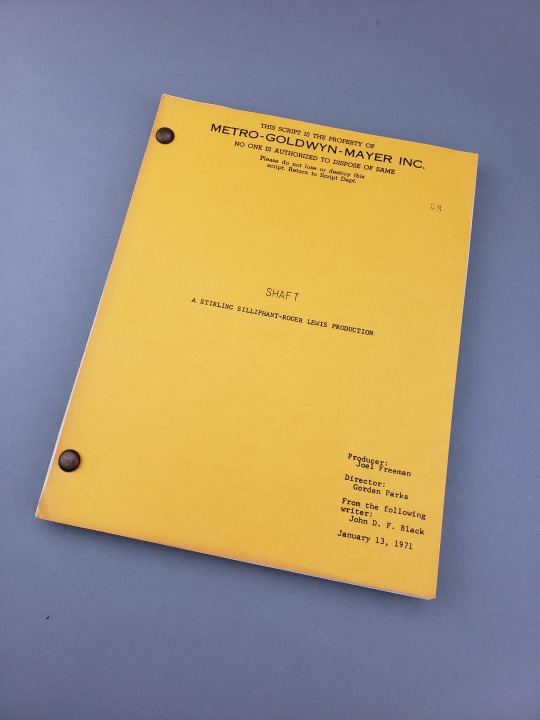
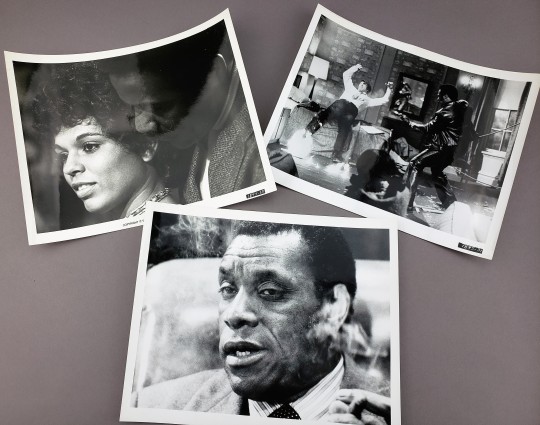
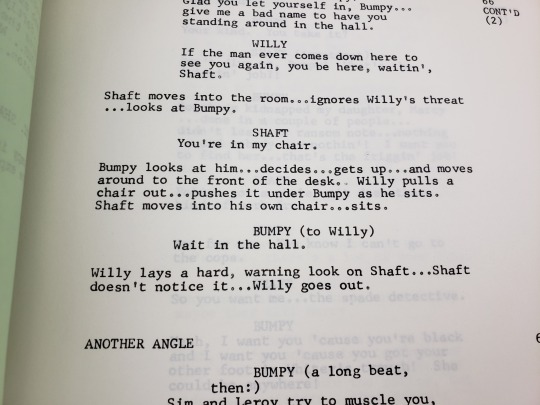
Shaft and the Era of Blaxploitation
Last year, Special Collections and Archives at the University of Iowa Libraries acquired items to form a new collection: the Black Film and Television Collection. In honor of Black History Month, we’re shining a spotlight on a different item from this collection each week.
In last week’s post, we discussed the lobby card for Oscar Micheaux’s 1938 film Swing, starring Cora Green. Our next spotlight is on original materials from the 1971 film Shaft, which includes the script used in the production in the movie, which was a defining entry in the Blaxploitation genre.
What is “Blaxploitation?”
We’ll start with the obvious: the word itself blends “Black” and “exploitation” and was coined by Beverly Hills-Hollywood NAACP president Junius Griffin in 1972 and wasn’t in the context of praise.
Blaxploitation movies are made by black filmmakers with black actors for black audiences. They portray strong black characters who were the heroes and leads. During the mid- to early 1970s, more than 200 movies of the genre were made, in subgenres such as horror, westerns, comedy, drama, and action.
Rather than trying to dispel stereotypes, movies like Shaft reinforce them. And while the movies were popular with audiences, that approach did create some critics, like Junius Griffin and other NAACP members.
Exploiting a lurid loophole
The Hays Code ruled Hollywood from 1934 to 1968, enforcing a strict set of moral standards for films. But filmmakers tend to be creative people, and “exploitation films” were the loophole they chose. If they depicted these offensive (and entertaining) subjects under the guise of a cautionary tale, they could get away with including them.
Over the years, court cases and boundary-breakers chipped away at the Hays Code. In 1968—the same year most history textbooks mark as the end of the Civil Rights Movement because it coincides with the assassination of Dr. Martin Luther King, Jr.—the Motion Picture Association of America (MPAA) scrapped the Code in favor of the film rating system. It was into these unique circumstances that a new genre—Blaxploitation—was born.
John Shaft’s world
Shaft is an adaptation of Ernest Tidyman’s 1970 detective novel, directed by Gordon Parks. Opening on an urban panorama overlaid with a funk soundtrack, the movie stars Richard Roundtree as John Shaft, a stylish and suave private detective in New York who is approached by the boss of a Harlem organized crime family (Moses Gunn) in search of his kidnapped daughter (Sherri Brewer). In the course of his mission, Shaft dispatches mafiosos, teams up with activists in the Black Power Movement, and delivers enough one-liners to cement his legacy as one of the iconic characters of 20th century film.
Even a brief glimpse at the original movie script’s pages (like the one shown above) showcase the swagger and bombast of the protagonist, who would go on to anchor multiple sequels. The movie’s iconic theme song, written and recorded by Isaac Hayes, has been sampled and reused dozens of times since the movie’s release, and the film itself has been preserved by the Library of Congress. It provides one of the early blueprints for the Blaxploitation genre, which continued to flourish throughout the 1970s.
It’s well worth noting that while Shaft’s director, stars, and core audience were Black, its writers were both white men. This information certainly complicates how many viewers receive the film’s representation of Black characters—and those complications became the focus of blaxploitation’s most vocal detractors.
Blaxploitation may have had its heyday in the 1970s, but it’s never truly ended. The genre was carried into the 21st century by the generation of filmmakers it inspired, including John Singleton, Spike Lee, and the Hughes Brothers.
Our next entry will be a look at Cheryl Dunye’s 1997 film The Watermelon Woman, and the growing influence of Black women in the film industry.
---Natalee Dawson, Communication Coordinator at UIowa Libraries with assistance from Anne Bassett, Liz Riordan, and Jerome Kirby
25 notes
·
View notes
Photo

High Plains Drifter will be released on 4K Ultra HD + Blu-ray on November 22 via Kino Lorber Studio Classics. The 1973 supernatural western is directed by Clint Eastwood (Unforgiven, Gran Torino).
Eastwood also stars with Verna Bloom and Mariana Hill. Ernest Tidyman (The French Connection, Shaft) wrote the script, with an uncredited rewrite by Dean Riesner (Dirty Harry).
High Plains Drifter has received a new HDR/Dolby Vision master from a 4K scan of the original camera negative. Special features are detailed below.
Disc 1 - 4K UHD:
Audio commentary by film historians Steve Mitchell and Nathaniel Thompson (new)
Audio commentary by filmmaker Alex Cox
DISC TWO - BLU-RAY
Audio commentary by film historians Steve Mitchell and Nathaniel Thompson (new)
Audio commentary by filmmaker Alex Cox
Interview with actress Marianna Hill
Interview with actor Mitchell Ryan
Interview with actor William O'Connell
A Man Named Eastwood - Vintage promo in HD
Trailers From Hell - Trailer commentary by filmmaker Edgar Wright
Trailers From Hell - Trailer commentary by screenwriter Josh Olson
2 theatrical trailers
TV and radio spot
Poster and image gallery
Clint Eastwood portrays a mysterious stranger who emerges out of the heat waves of the desert and rides into the guilt-ridden town of Lago. After committing three murders in the first 20 minutes, The Stranger is hired by the town’s citizens to protect them from the three vengeful gunmen about to be released from jail.
Pre-order High Plains Drifter.
#high plains drifter#clint eastwood#70s movies#1970s movies#western#westerns#kino lorber#kino lorber studio classics#dvd#gift#4k ultra hd#4k uhd#edgar wright#alex cox
14 notes
·
View notes
Text
Richard Roundtree (Shaft), Dead at 81
Actor Richard Roundtree, best known for his iconic role as private investigator John Shaft in a series of films in the 1970s, has succumbed to pacreatic cancer, passing away in Los Angeles on October 24, 2023. He was 81.
Richard Roundtree made an indellible impression on modern popular culture in the role of John Shaft, a fictional character created by Ernest Tidyman for the 1970 novel Shaft. He…

View On WordPress
0 notes
Text
The French Connection, William Friedkin, 1971, US

Starring Gene Hackman, Fernando Rey, Roy Scheider, Tony Lo Bianco, Marcel Bozzuffi, Frederic de Pasquale.
104 min, Film Neo Noir
The screenplay, written by Ernest Tidyman, is based on Robin Moore's 1969 book of the same name.
New York Detective "Popeye" Doyle (Gene Hackman) and his partner (Roy Scheider) chase a French heroin smuggler.
An urban crime thriller which won undeserved acclaim for its efficient but unremarkable elevat-
ed-railway chase and its clumsy, showy emphasis on grainy, sordid realism. The performances are strong, although Hackman has done far better than this portrayal of a hard-nosed cop obsessively tracking down a narcotics ring in New York, using methods disapproved of by his superiors. The real problems, however, are that Friedkin's nervy, noisy, undisciplined pseudo-realism
sits uneasily with his suspense motivated shock editing; and that compared to (say) Siegel's Dirty Harry, the film maintains no critical distance from (indeed, rather relishes) its 'loveable' hero's brutal vigilante psychology.
At the 44th Academy Awards, the film earned eight nominations and won five for Best Picture, Best Actor (Hackman), Best Director, Best Film Editing, and Best Adapted Screenplay.
0 notes
Photo

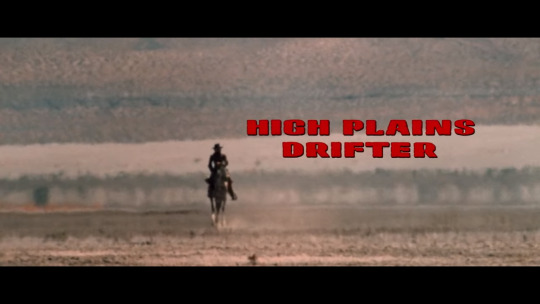
CALIFICACIÓN PERSONAL: 7 / 10
Título Original: High Plains Drifter
Año: 1973
Duración: 105 min
País: Estados Unidos
Dirección: Clint Eastwood
Guion: Ernest Tidyman
Música: Dee Barton
Fotografía: Bruce Surtees
Reparto: Clint Eastwood, Verna Bloom, Marianna Hill, Mitchell Ryan, Stefan Gierasch, Jack Ging, Geoffrey Lewis, Billy Curtis, Ted Hartley, Robert Donner, John Mitchum
Productora: Universal Pictures, Malpaso Productions
Género: Western; Drama; Mistery
https://www.imdb.com/title/tt0068699/
TRAILER:
youtube
0 notes
Photo

Shaft’s Big Score, 1972
103 notes
·
View notes
Photo

Ernest Tidyman - Flower Power (1968)
129 notes
·
View notes

